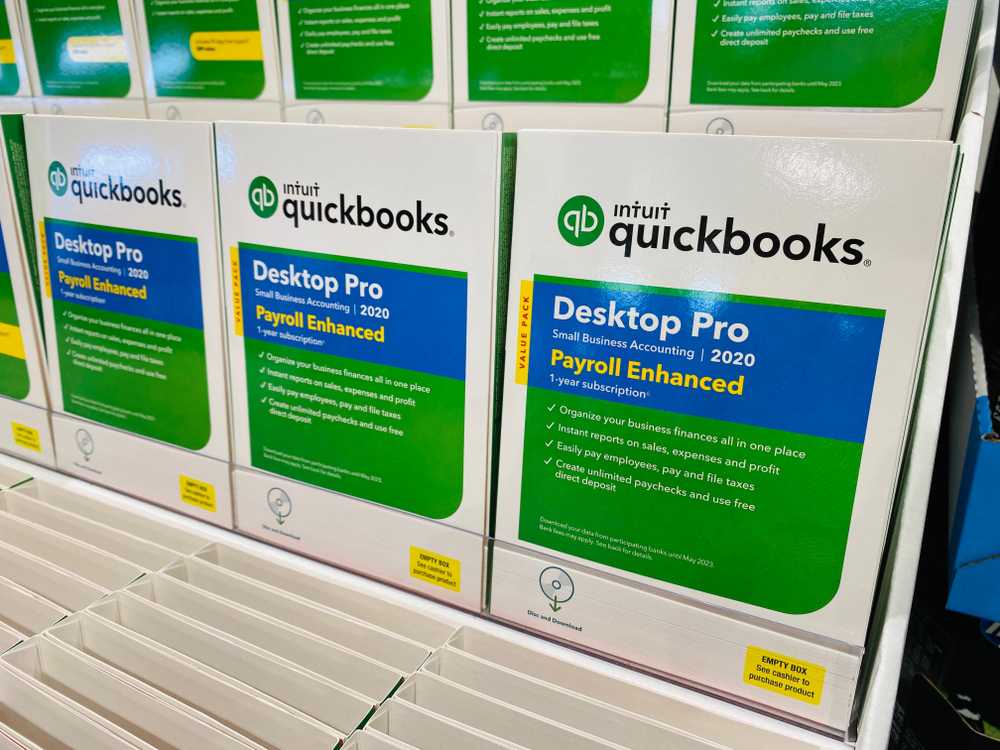Any business currently using the desktop version of the QuickBooks accounting software should know by now that on June 30th 2023, it will be discontinued for all customers in Ireland. This includes all versions of QuickBooks Desktop Pro, Premier and Enterprise.
Many businesses that depend on QuickBooks are now facing a significant setback, and time is running out for business owners to discover alternative accounting software.
In many ways, this is good news. It’s confirmation that cloud-based accounting software will always be safer to use and considerably more reliable than anything that’s limited to desktop use only.
What happens next?
Intuit, the company behind QuickBooks, announced the discontinuation of all QuickBooks Desktop services in Ireland. They stated that any business using the desktop version of QuickBooks would need to find a QuickBooks alternative by midnight of June 30th 2023. After that time, there will be no support for desktop, and it will no longer be accessible.
The cancellation is down to users missing out on vital updates thanks to outdated and even non-compliant software for their accounting. In their announcement about the discontinuation of QuickBooks Desktop, Intuit said, “With the recent changes to accounting and tax regulations, and with more on the horizon, we have taken the decision to discontinue all QuickBooks Desktop services for our Ireland customers.”
Cloud-based accounting software is now an essential requirement for any business with one eye on the future. As companies strive to keep up with the fast-paced digital transformation, digital services are becoming the new standard. Streamlining those services is critical, and when users of QuickBooks Desktop had to utilise multiple add-ons to connect with their accounting service, it’s easy to see why it rapidly became obsolete.
Moving to QuickBooks alternatives
If you’ve been using QuickBooks Desktop, you will have to migrate your accounting data to an alternative before the deadline of June 30th 2023. All of that data will need to be exported to your chosen QuickBooks alternative.
Customers aren’t happy about this decision by QuickBooks. An online user commented on the news – “I was told that I would not be able to bulk send invoices to clients via email if I didn’t upgrade” or others getting prompts that they will lose pay enabled invoices for the Desktop version if they don’t upgrade.
People who didn’t intend to migrate their desktop data are now forced to find an alternative and those who moved to QuickBooks Online are encountering disparities between the two platforms and need to re-learn entirely.
Another major issue is that QuickBooks Desktop is noticeably more robust than the QuickBooks Online service. For users hoping to export their data from desktop to Online, the fact is that there are entire sections available on the desktop that aren’t on QuickBooks Online.
Choose a reliable QuickBooks alternative
It can take work to take the pain out of accounting. If you’ve been using QuickBooks Desktop, the time has come to start looking for alternatives. There are several options, so take the time to do some research. Always have a clear idea about what your business needs from that software, and — as we can see with this announcement by Intuit — using cloud-based accounting software is clearly the best option.
If you’re interested in finding out more about the best QuickBooks alternative, contact the Big Red Cloud team today. We can help you manage your migration to avoid interruptions to your accounting workflows. You can even get hands-on with your new accounting software by signing up for a FREE trial. Find out for yourself how we can work together to make greater use of your finances to help your business grow.
Find out what our customers say
“We use Big Red Cloud for our day to day accounting and bookkeeping requirements. I find the pack very easy to navigate with a great back up and support team who are always able to answer any questions I have.” – Maria, The Lemon Leaf Cafe




